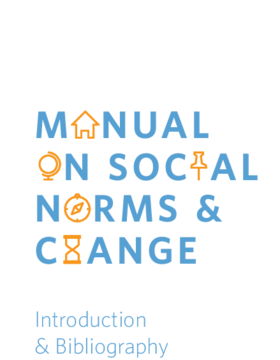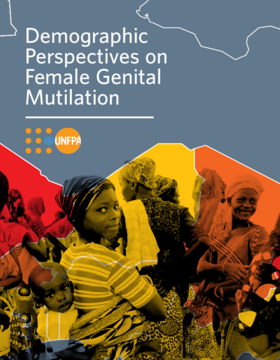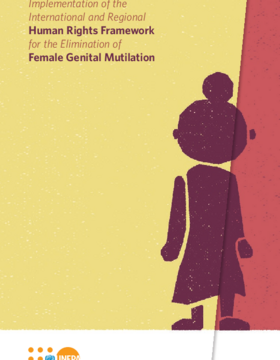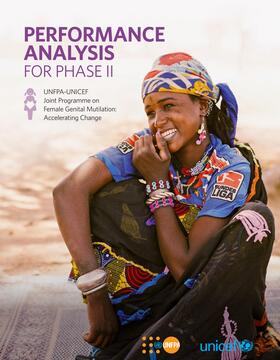
2018 Annual Report of FGM Joint Programme: Accelerating Change
The practice of female genital mutilation (FGM) has continued to decline around the world, including in high prevalence countries where the United Nations Population Fund (UNFPA) and the United Nations Children’s Fund (UNICEF) have been implementing the Joint Programme on Female Genital Mutilation: Accelerating Change.

Manual on Social Norms and Change (2016)
This manual is meant for training programme managers to promote the abandonment of female genital mutilation/cutting (FGM/C). It has been designed under a joint programme of the United Nations Population Fund and the United Nations Children’s Fund. The Joint Programme applies an innovative approach to FGM/C abandonment, using a social norms perspective to guide the selection of an appropriate mix of strategies and activities most conducive to self-sustained social change.

Demographic Perspectives on Female Genital Mutilation
Female genital mutilation (FGM) is the practice of partially or totally removing the external genital organs for non-medical reasons. It violates the human rights of girls and women, and causes serious and, in some cases, life-threatening health complications.

Implementation of the International and Regional Human Rights Framework for the Elimination of Female Genital Mutilation
A human rights approach to FGM places the practice within a broader social justice agenda — one that emphasizes the responsibilities of governments to ensure realization of the full spectrum of women’s and girls’ rights.

2017 Annual Report of FGM Joint Programme: Performance Analysis for Phase II
This companion booklet to How to Transform a Social Norm showcases key results achieved by the UNFPA-UNICEF Joint Programme on Female Genital Mutilation during 2014-2017.